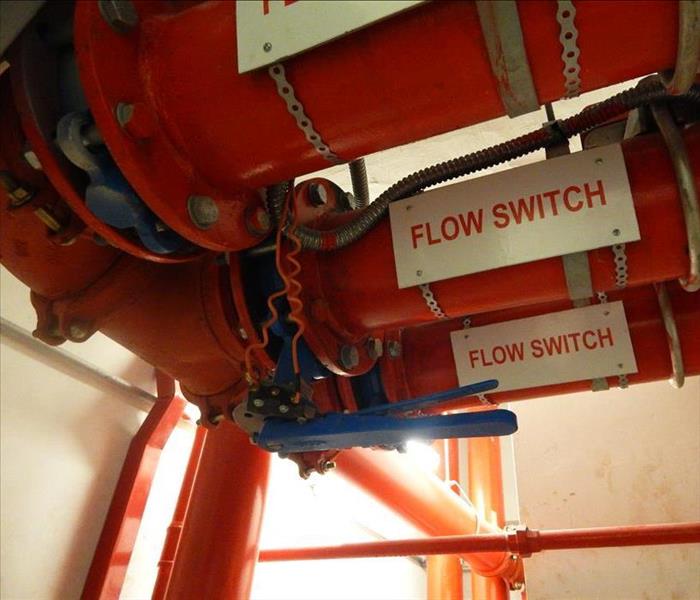Common Problems That Require Commercial Water Repair
7/31/2022 (Permalink)
Commercial properties share some of the same water damage risks, such as a broken pipe, as residential properties. However, commercial properties also have unique risks because of the size, scale and nature of their operations. These are some of the most common water damage issues in commercial buildings.
Common Commercial Water Repair Issues
Commercial property owners face several common issues that can lead to water damage:
1. Clogged Drains
Because of the large volume of waste passing through drains, commercial properties frequently have issues with clogged drains. Additionally, employees and members of the public may not take the same care when using commercial plumbing systems, leading to additional problems due to objects and substances being flushed down toilets and dumped into sinks that shouldn't be. Clogs may lead to flooding from sink and toilet overflows that require cleanup by a water restoration service in Pueblo, CO.
2. Water Temperature Issues
Commercial water heaters are large and complicated. This makes them prone to deterioration which can lead to issues with water temperatures. Depending on the severity of the problem and the nature of the operations, this could cause minor inconveniences, such as a lack of warm water in the bathroom sink, or major problems, such as water not being kept at the required temperature for industrial processes or regulations.
3. Pipe Damage
Many commercial buildings contain hundreds of miles of pipes that carry thousands of gallons of water. A broken pipe can cause significant property damage and service disruption.
4. Leaks
The sheer number of pipes and fixtures in many commercial buildings can make it difficult to avoid leaks, particularly if regular maintenance schedules are not followed. In addition to sinks and toilets, industrial equipment and sprinkler systems may require pipes and supply lines that cause leaks. Damaged roofs and leaky foundations can also be a source of water issues.
5. Sewage Smells
Dry pipes, clogs and other issues can cause sewage smells to permeate a commercial building. When this happens, businesses may lose customers or be forced to shut down while the source of the problem is investigated and resolved.
6. HVAC Problems
HVAC units can cause water damage due to frozen evaporator coils, clogged drains and improperly connected pipes. Many HVAC problems can be avoided with regular maintenance and inspection.
7. Vacant Buildings
Vacant buildings do not use water in the same way that occupied buildings do; however, when a problem occurs it may not be detected for a long time. Water sources to vacant buildings should be shut off and buildings should be regularly inspected for leaks.
8. Boiler and Machinery Malfunctions
Boilers and other commercial equipment that use water can malfunction leading to leaks, burst pipes and other types of water damage. This equipment must be properly inspected and maintained to avoid problems.
9. Sewage Backup
Sewage backups can be caused by clogs and heavy rainfall. While this type of damage is not as common as other types, it can be particularly severe because of the need to clean and sanitize the impacted areas.
A broken pipe can happen in any type of building. However, commercial buildings face unique challenges that require vigilance from building owners.





 24/7 Emergency Service
24/7 Emergency Service
